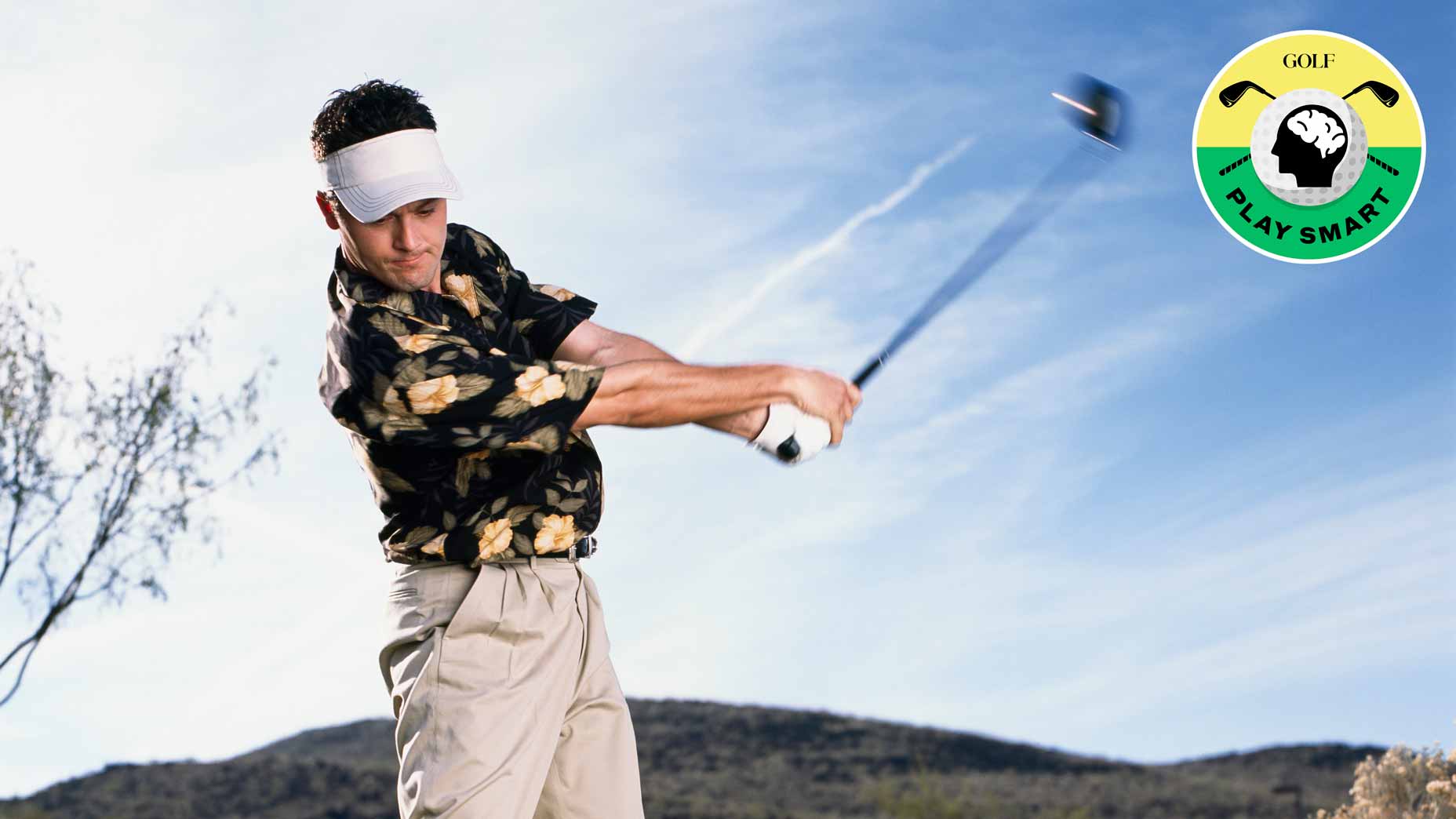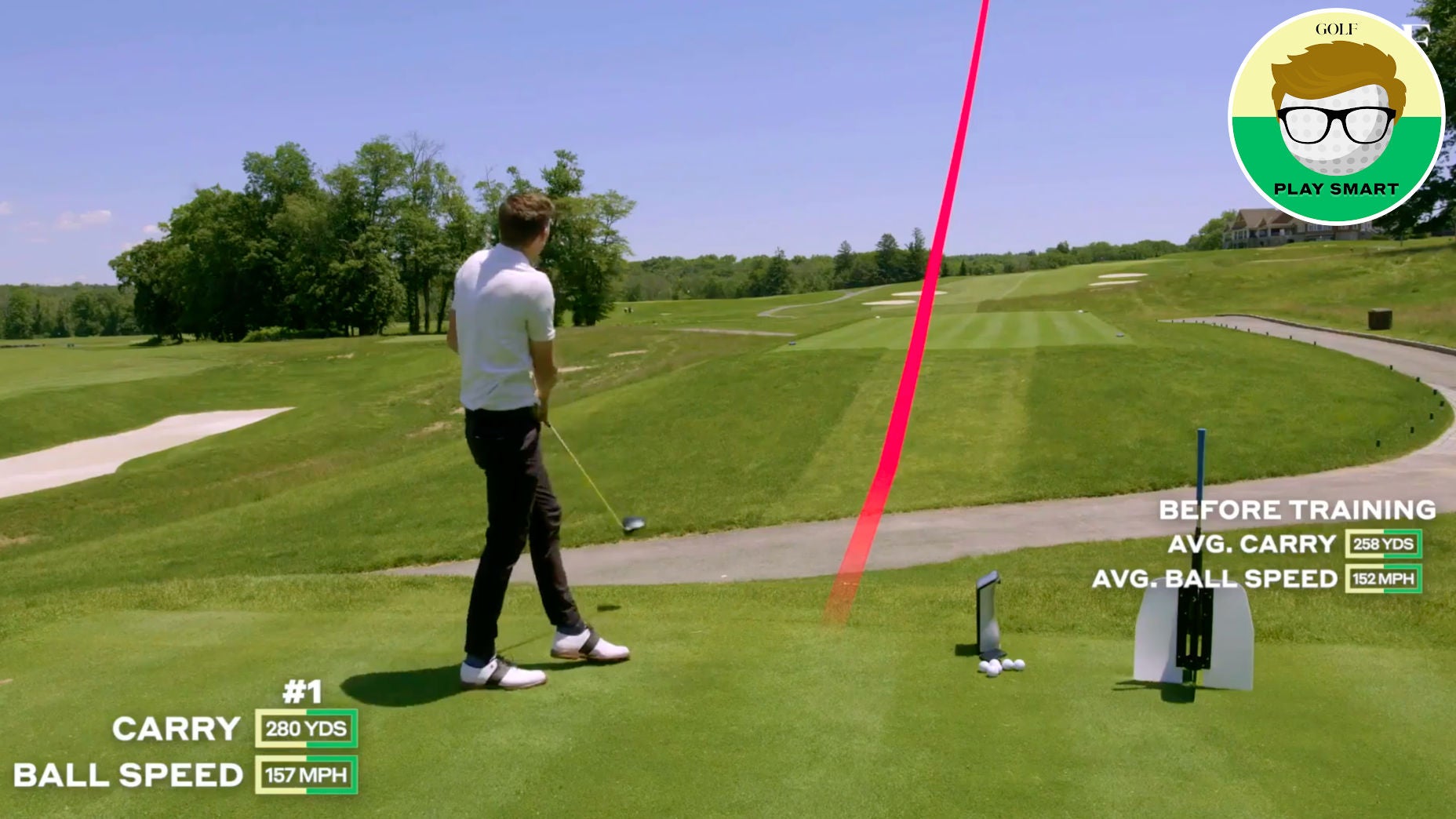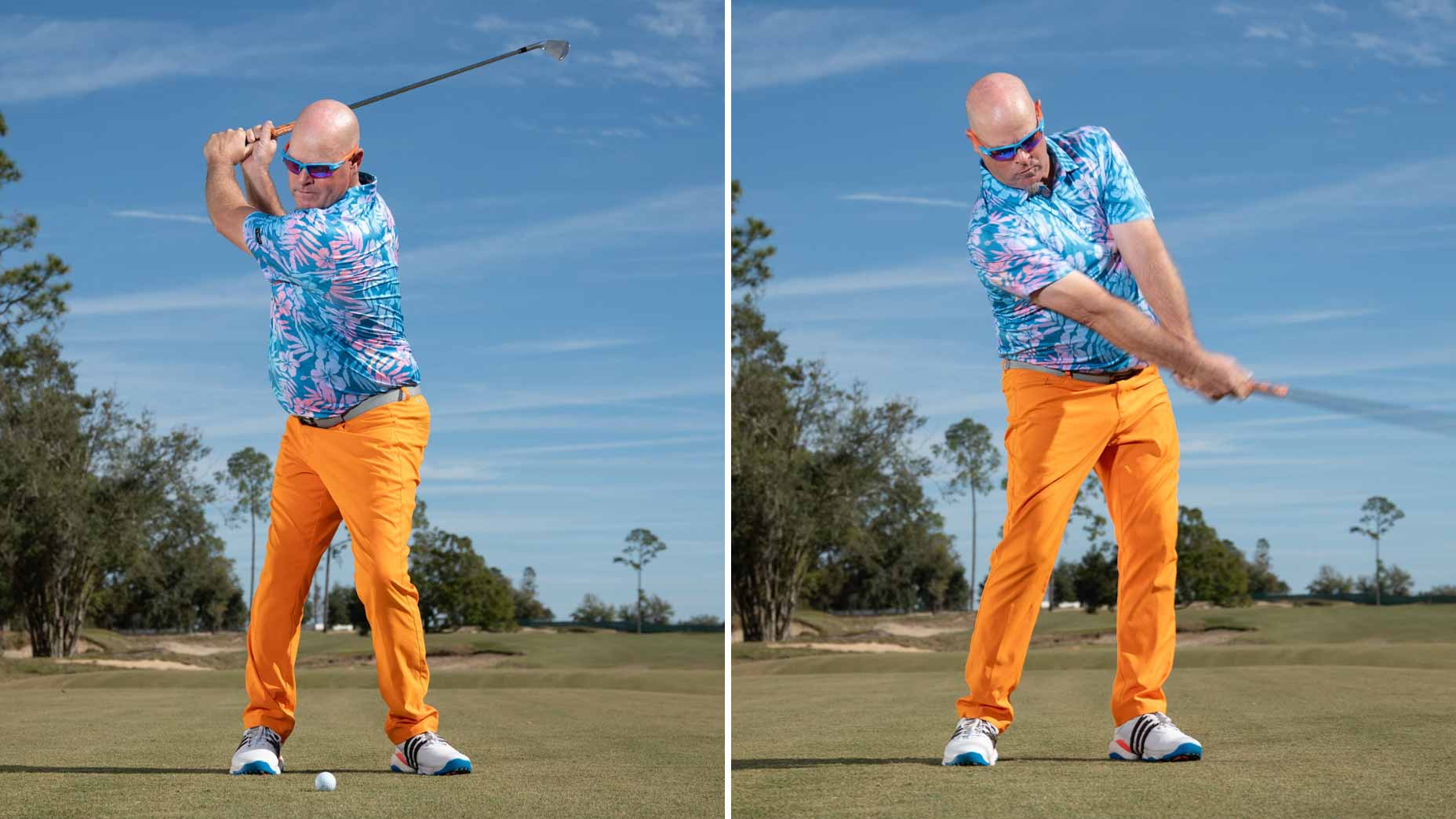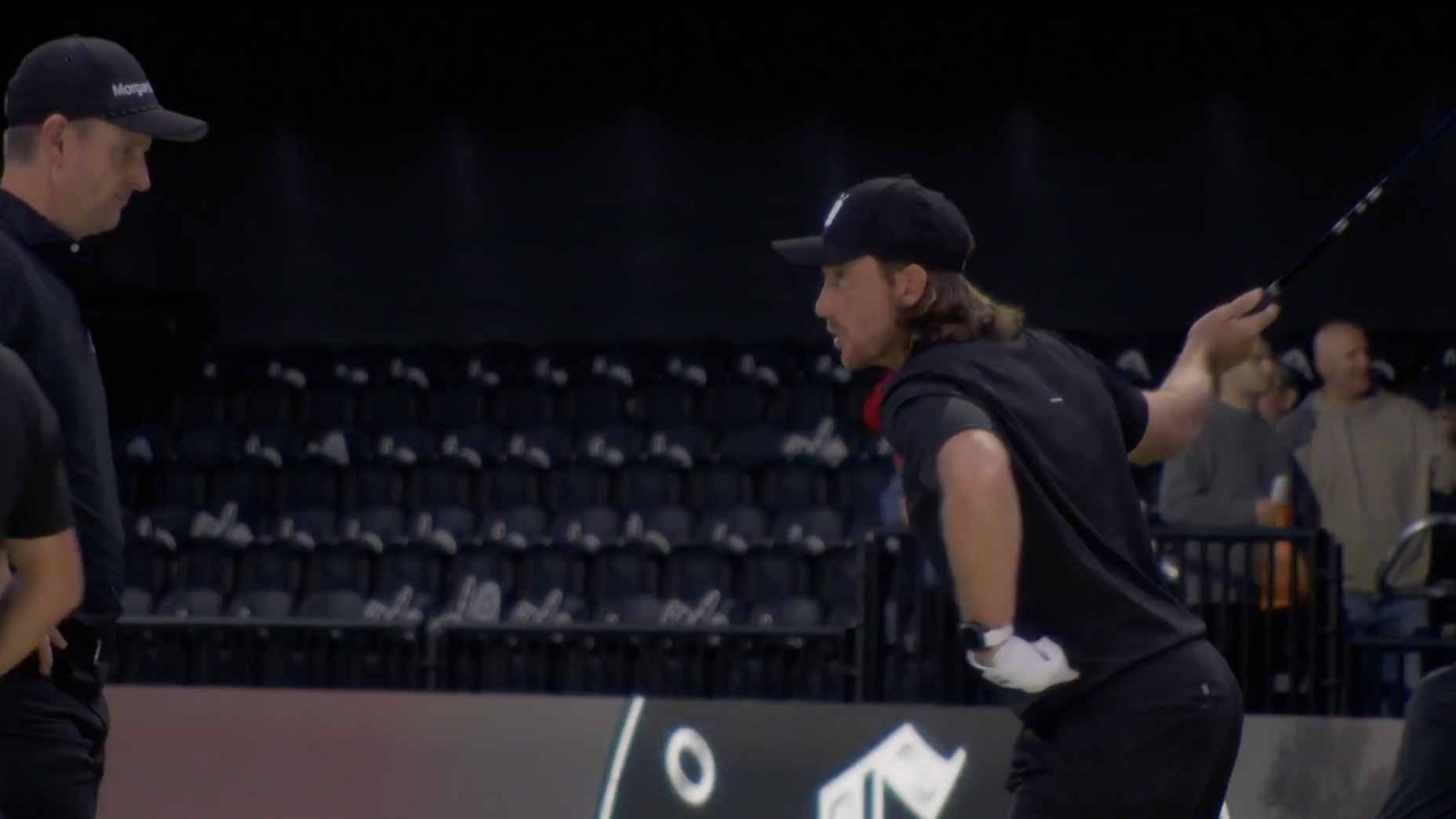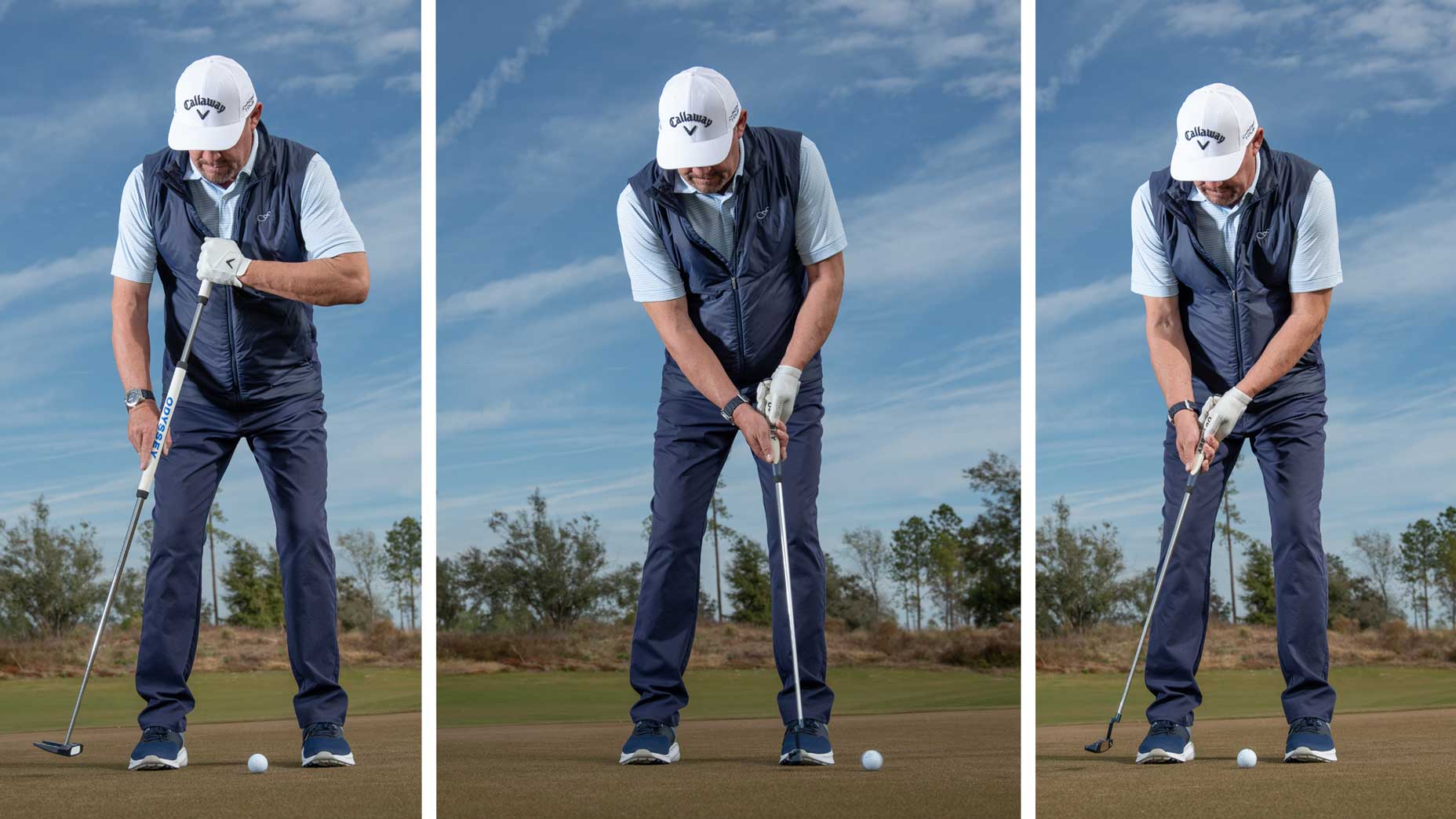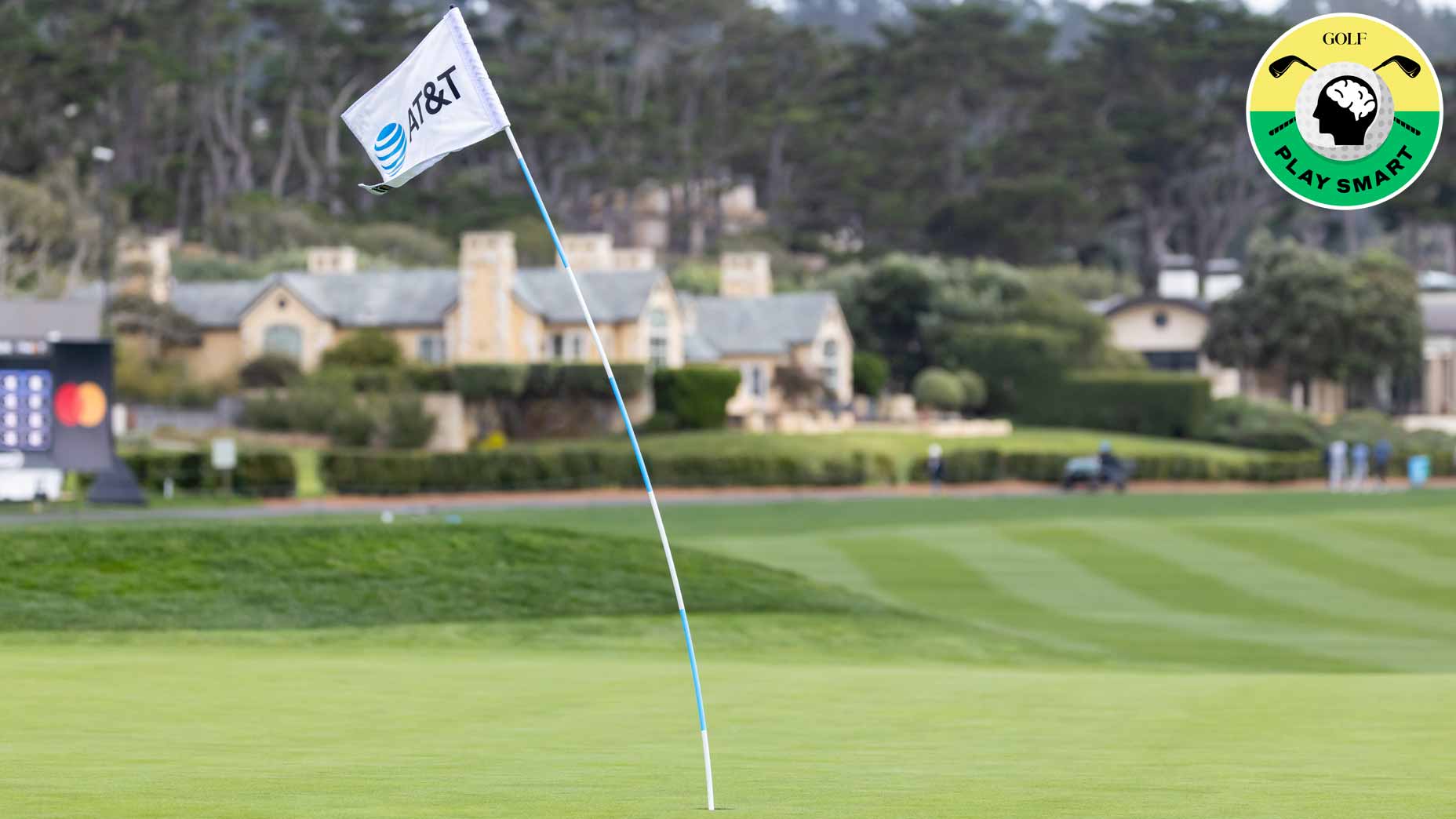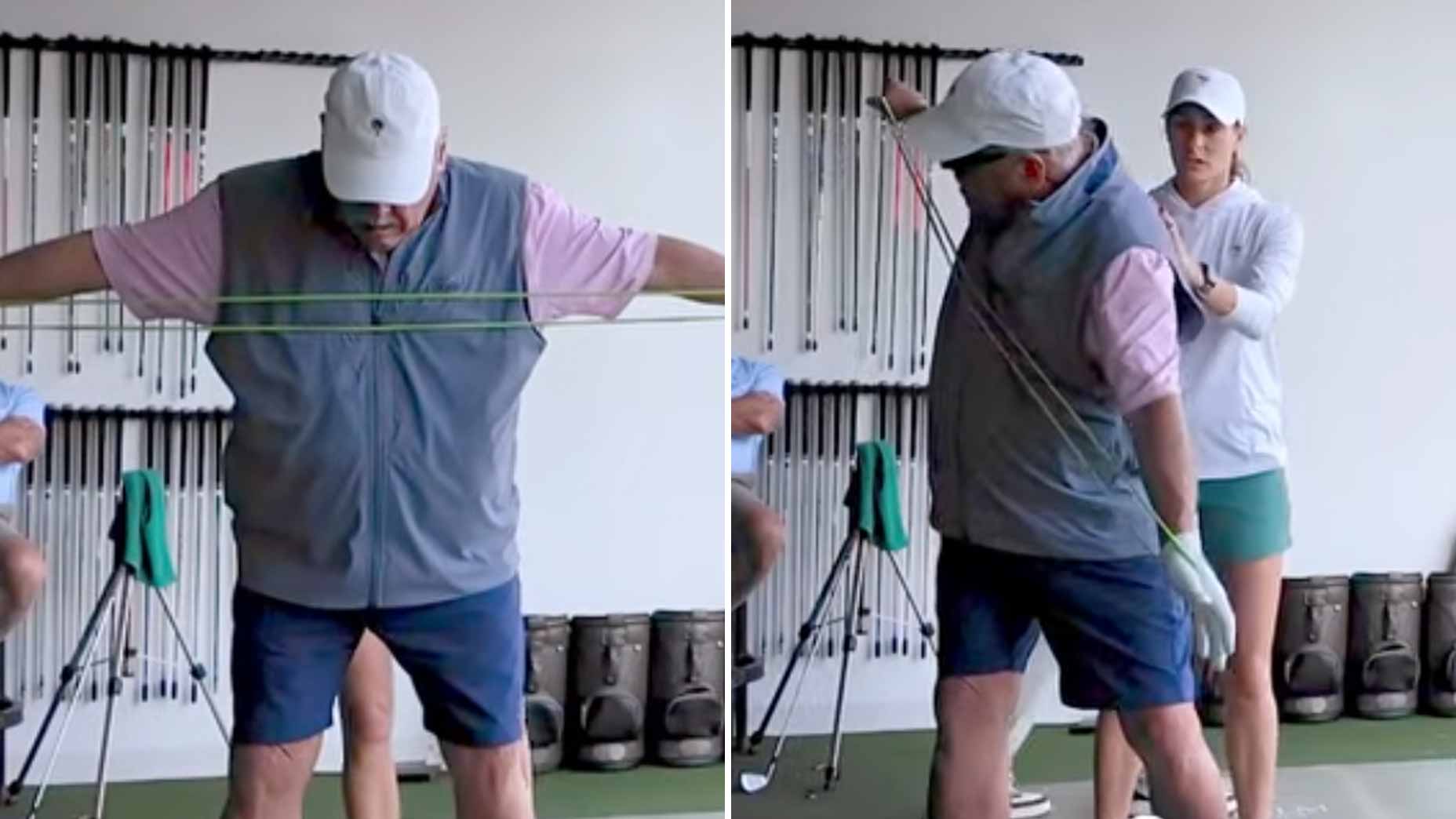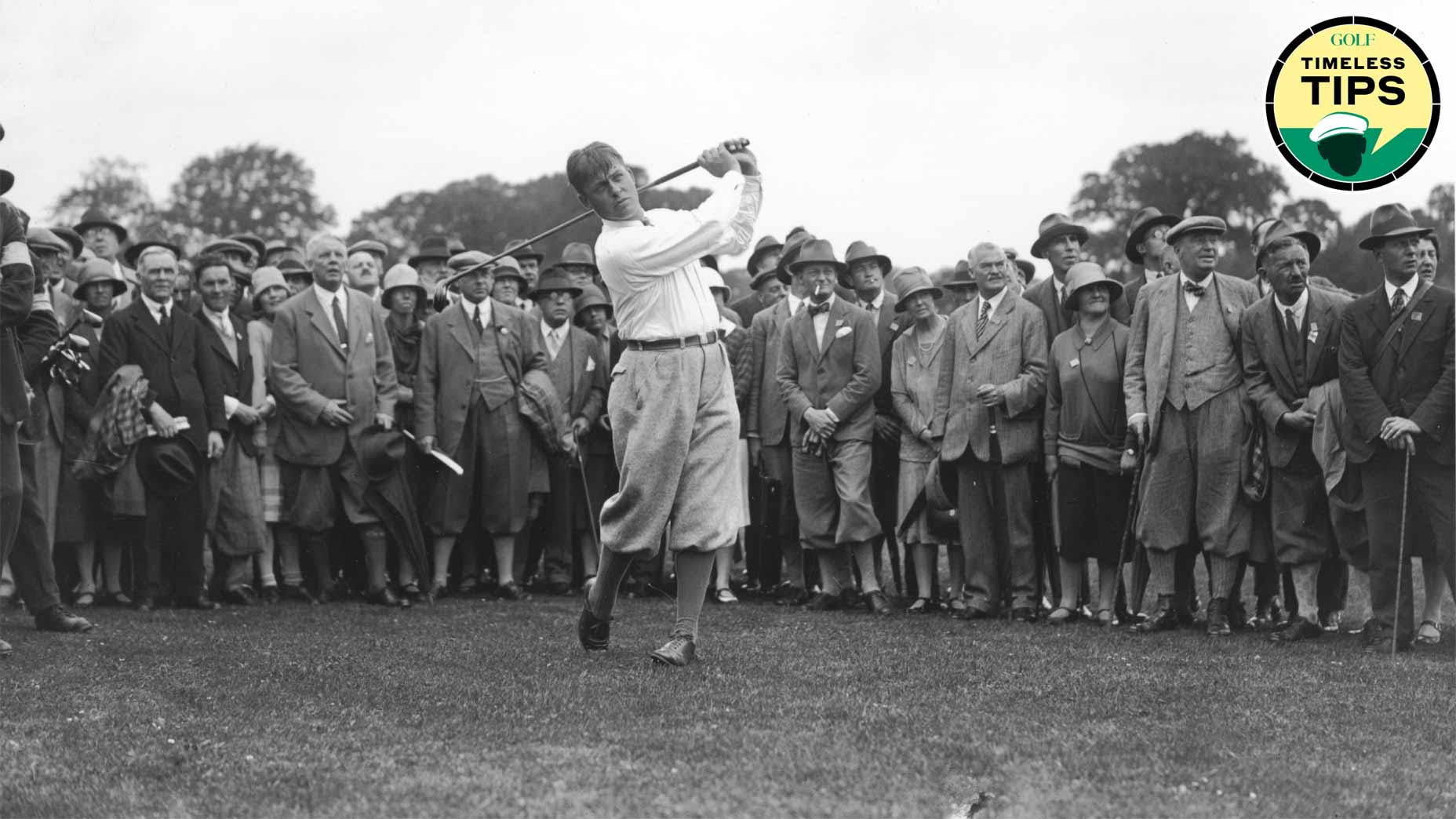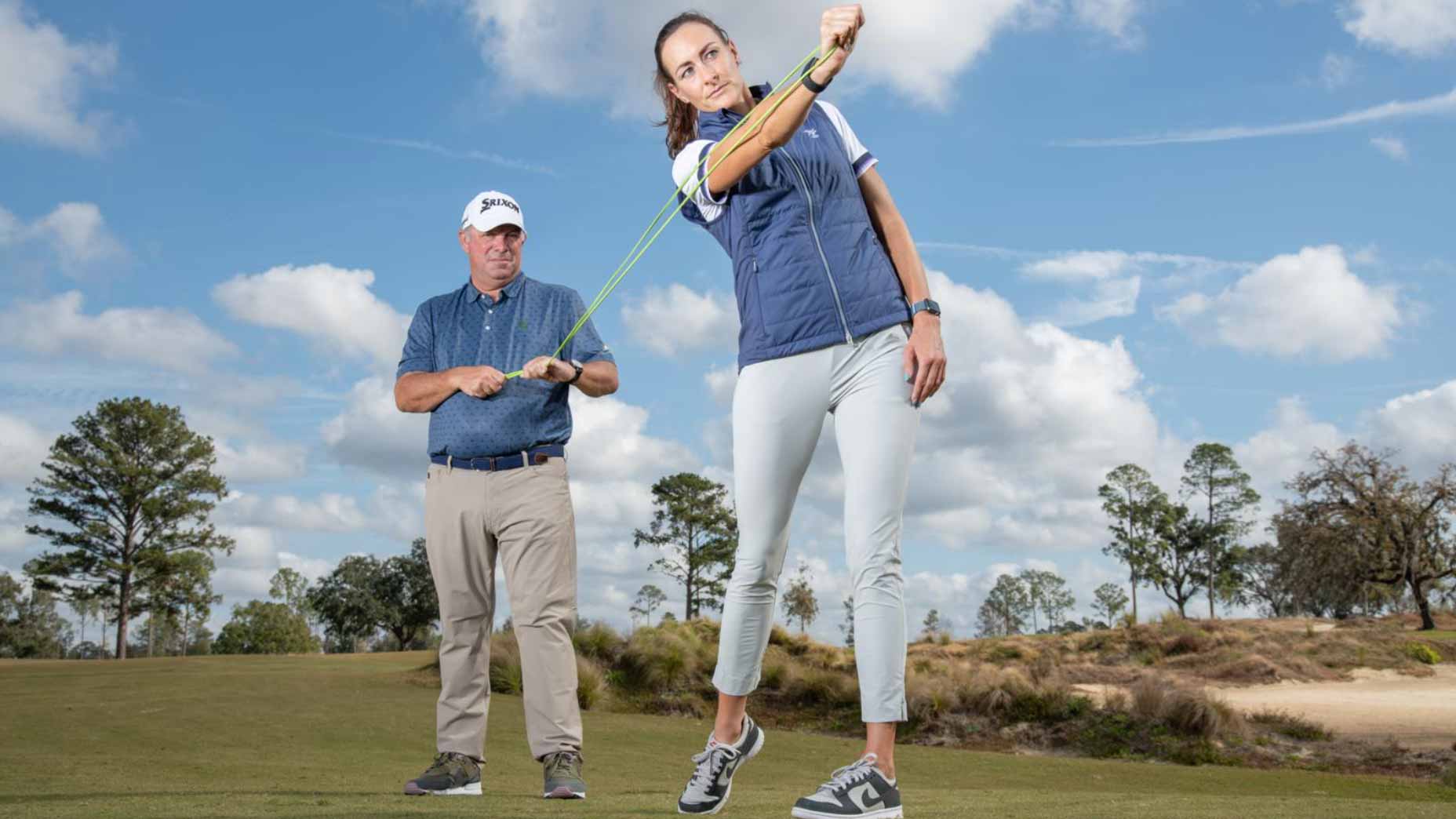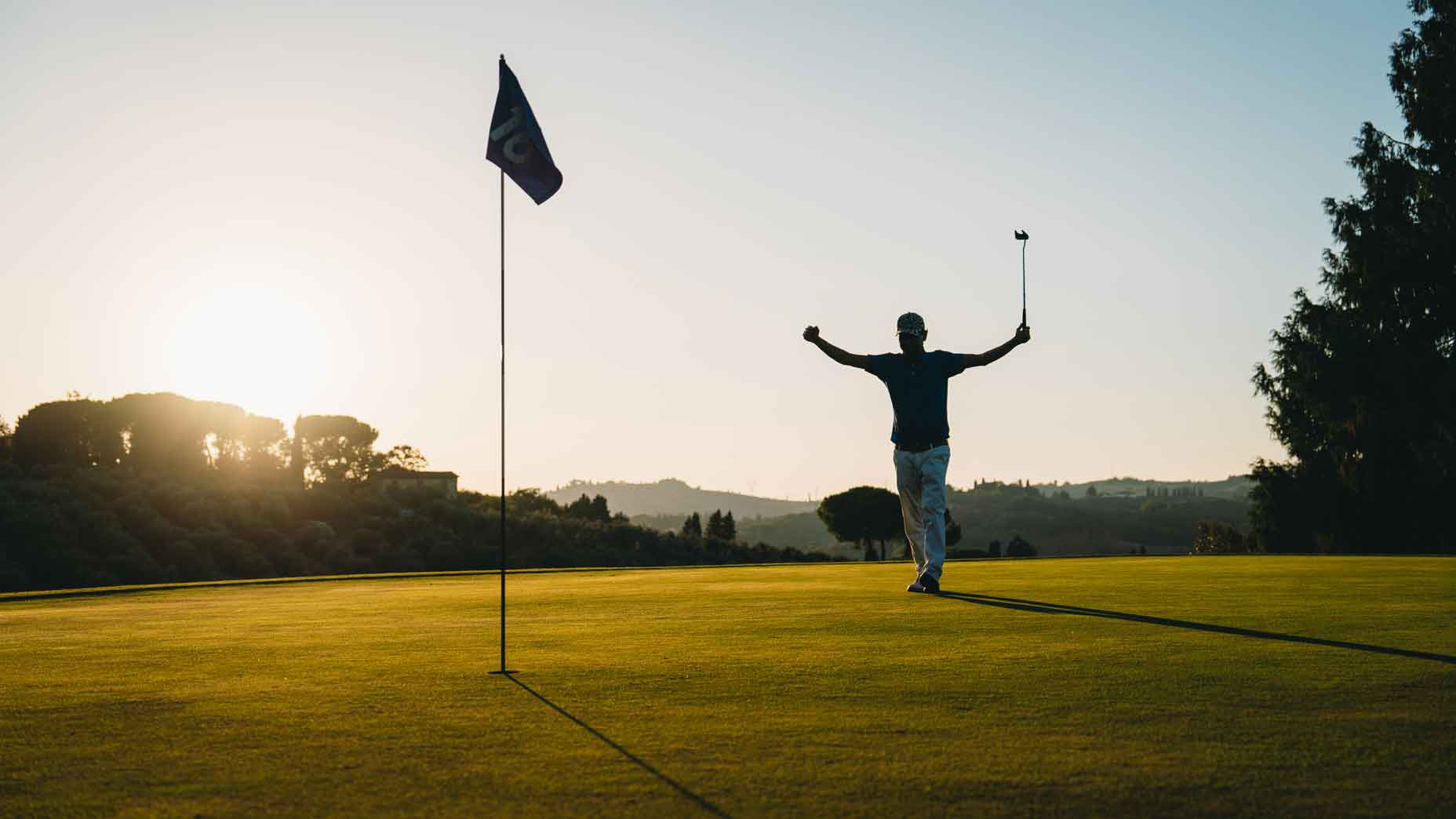Welcome to Play Smart, a regular GOLF.com game-improvement column that will help you play smarter, better golf.
From seasoned veterans to beginning golfers, many players struggle with understanding why (and how) to slow down the golf swing.
Many amateur players think that by overswinging, the added club speed is going to lead to further distance. But, many times, the result ends up being poor, as the out-of-control-swing leads to hooks, slices and inconsistency. As one pro golfer once told me, “Hitting it crooked is no way to go through life, son.”
In today’s Play Smart, golf instructor Paul Wilson shows players different ways to pull back on the aggressiveness, find better balance and understand how to slow down your golf swing. Take a look below to see how you can improve!
How to slow down your golf swing
Swing half-speed
One thing that I notice with a lot of newer golfers I play with is overswinging. They grip the club as tight as possible. They setup looking tense. And they seem to go a million miles per hour in their backswing and follow through. This is common — especially for amateurs.
This 3-step range fix will stop you swinging over the top
To help combat the issue, Wilson suggests swinging half-speed, which may sacrifice possible distance, but will result in a straighter shot.
“If you’ve got to go half-speed to hit it straight, then you go half-speed. Just go nice and easy. Watch the ball; we’re going to take off the slice spin and get it going straight.
“When you go fast, you don’t have enough time to square this [club]face. So if you slow down, you’ve got more time to let the club release.”
Watch your ball to gauge how much to slow down your golf swing
Like most things in golf, learning how to slow down your golf swing requires tendencies. So, while Wilson doesn’t say exactly how much to slow down, he says the easiest way to gauge where you should be is by watching your ball.
“How do you know how much to slow down? You watch your ball. You slow down to the point you start hitting it dead straight.
“Get confident with it, then, for more power you’d be driving your legs a little bit faster — but you don’t even have to try to do that.”
As your confidence grows, you start increasing club speed
When golfers are feeling confident, they player looser, resulting in better scores. This is true when it comes to slowing down your swing, too, with Wilson saying that, over time, you’ll continue to increase your club speed without even knowing it because you’ll start gaining trust in yourself.
“I’ve played this game for a long time. I know that, when you start getting confident, you automatically start swinging a little harder without even realizing it. That’s because you’re so confident, you will naturally start to increase [club speed] and not hit it sideways.”
Stop obsessing over distance
Most players have heard the phrase, “drive for show, putt for dough” — meaning that lower scores occur as you get closer to the hole, not from the tee box all the time.
How I gained 15 yards of distance in one week — but there’s a catchBy: Luke Kerr-Dineen
This is something Wilson stresses in the video, saying amateurs need to stop obsessing over length off the tee and just focus on slowing things down, hitting it straighter, building their confidence and using their memory to consistently duplicate that swing.
“If you’re working on getting more distance, then you don’t care where you hit it. You’re just trying to get the distance, then you start working on very precise positioning.
“But if you don’t care that much, then just try it this way for a little bit. Swing at a pace that you can hit it nice and straight. Stick to that pace. Memorize it in your mind. That’s your swing. Let’s see what happens after you start hitting fairway after fairway after fairway.”
